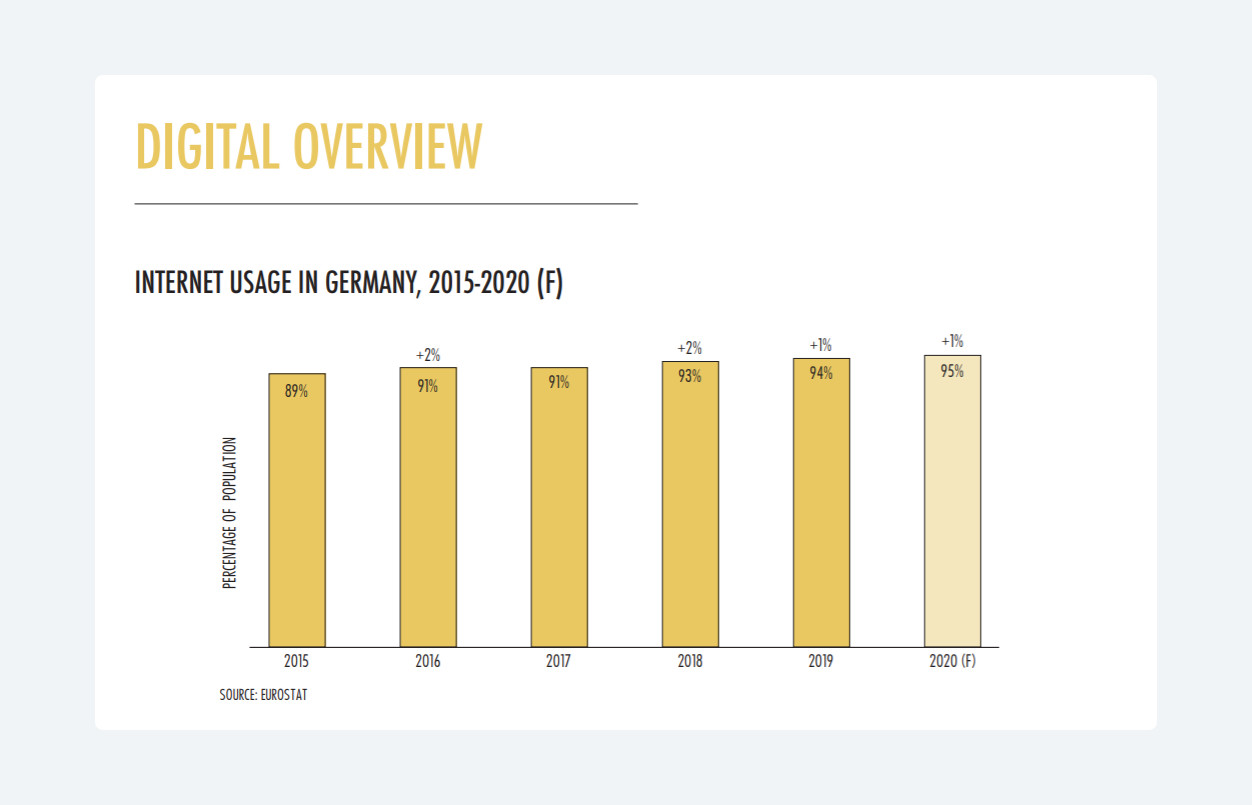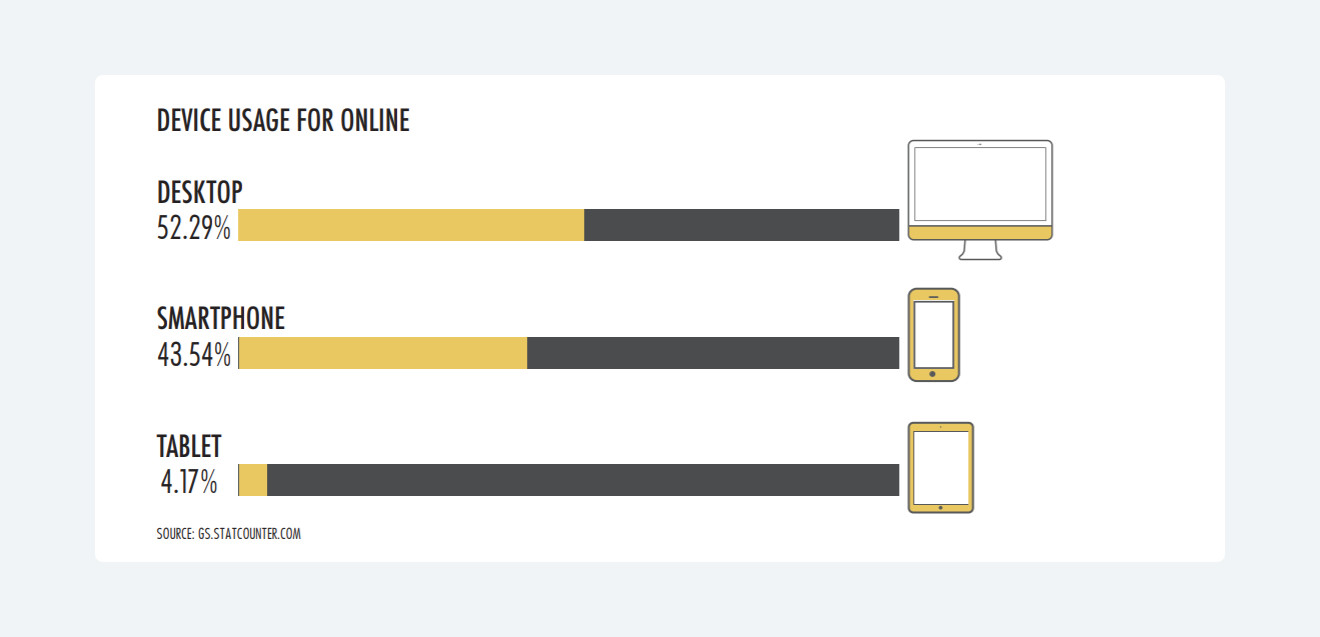Digital overview: Germany 2020 Ecommerce Country Report
Written by
Kinga EdwardsPublished on

When it comes to digital Germany may be called a specific nation. Read our digital overview based on GERMANY 2020: Ecommerce Country Report and learn more about how Germans act online.
According to GERMANY 2020: Ecommerce Country Report, we created a German digital overview. You can download the full report here.
Internet accessibility
There were over 77 million active Internet users in January 2020 in Germany, which means an increase of 0.4% compared to 2019.
Despite almost universal access to the internet, only about 8.5% of German households have access to optic fibre. In 2016, Germany took only 29th place in the world data download speed ranking and 72nd place in terms of average data transfer speed. Despite the efforts of the government, a slow Internet connection can be a fairly common problem among Germans. Unfortunately, Germany differs significantly from the rest of Western Europe when it comes to digitization (mainly when talking about Internet connection in mobiles). It may cause trouble, especially in the aspect of online shopping.

Device choices
In Germany, ¾ of the community have smartphones, which makes them an 8th country in the aspects of smartphone penetration. Almost 50% of Germans use smartphones every day. What is kind of fun fact – the number of mobile connections at the begging of 2020 was equivalent to 132% of the total population of the country. Many of Germans use their desktops (17%), laptops (15%) and tablets (10%) daily, too. It affects websites providers – they need to adjust their websites to all devices above to keep visitors pleased. Over half of the German community use desktops to their online activities. Little less use their smartphones. Tablets are the least popular choices. Online shopping has become very common, as well as m-commerce which means online shopping via mobiles. Almost 60% of German Internet users buy clothes via mobiles, little less buy books and plane/train tickets. What is also kind of interesting fact – the most popular mobile vendor in German is Samsung, 40% of Germans use Samsung devices, over 10% less use Apple ones. The podium is closed by Huawei – 17%.

Social media
In comparison to the rest of Europe, social media is not so popular in Germany. The most popular is Facebook, second place belongs Pinterest than Twitter, Instagram and YouTube.

When it comes to devices rankings, the situation looks different. In terms of desktops, Facebook is still the winner, but the rest of the podium presents some differences. YouTube is the second one and Twitter the third.

https://gs.statcounter.com/social-media-stats/desktop/germany
When we are looking at mobile stats, Facebook is a great winner, over 60% of Germans use this social media platform vias smartphones. Then it comes Pinterest and YouTube.

https://gs.statcounter.com/social-media-stats/mobile/germany
Online behaviour
Germany is known for its accuracy and meticulousness. Their online behaviour is no different than in the real world. They often write product reviews and share them not only on products pages but also on blogs or forums. They scrutinize them carefully when it comes time to make a purchase decision. Price comparison websites are also a very important point of preparation for shopping. The higher the price, the better the research should be done. The quality aspect is also crucial. It is the best situation if the German receives the best quality product at the lowest price. However, if the company can confirm the quality of its products, e.g. with certificates, the German consumer is ready to ignore the high price.
What else is important for Germans? Security and transparency. Together with social and environmental suitability, they form a group of the most essential factors for German consumers. The company needs to ensure consumers at every stage of shopping that their data is secure and is not passed on. Germans are reluctant to share them, and if they do, they want to have a 100% sense of security.
The CSR issue is very developed in Germany. If a company wants its marketing activities to be effective, they should include some CSR in it. This significantly improves the company’s image in the eyes of German consumers. The company should also inform consumers about its activities in terms of the environment and the working conditions of employees. Germans pay a lot of attention whether the company is eko and whether it treats its employees well.
Payments
Germany is a society that still trusts online payments too much. Even though they have credit cards usually paying cash. When it comes to online shopping, especially for larger amounts of money, most Germans choose to pay by invoice. This puts ordering food, e.g. by Uber Eats in Germany in a completely different dimension. Restaurants usually do not offer online payments, e.g. by credit card or via PayPal, but provide only cash payments on delivery.
To sum up
We hope that thanks to this overview, you have learned a little about German online preferences and behaviour. If you are considering starting an e-commerce business on the German market, this text may be considered as very helpful for a good start.


